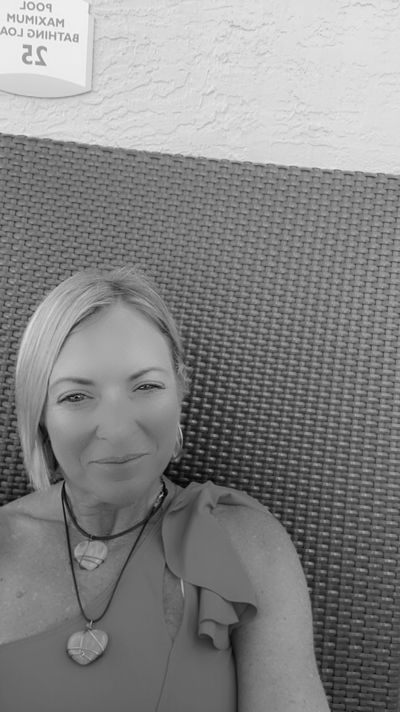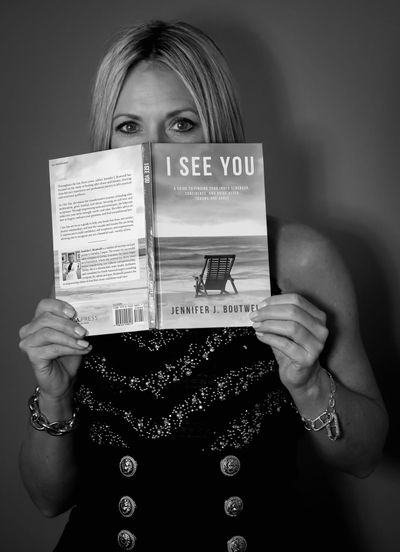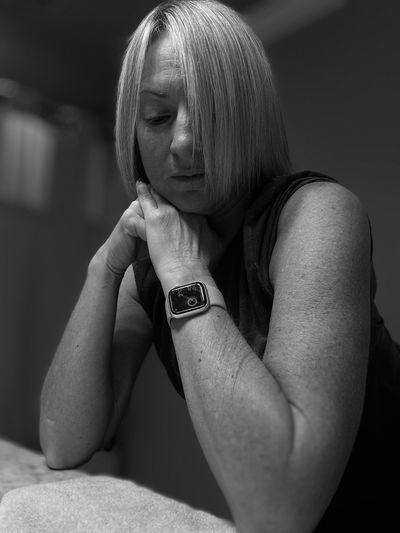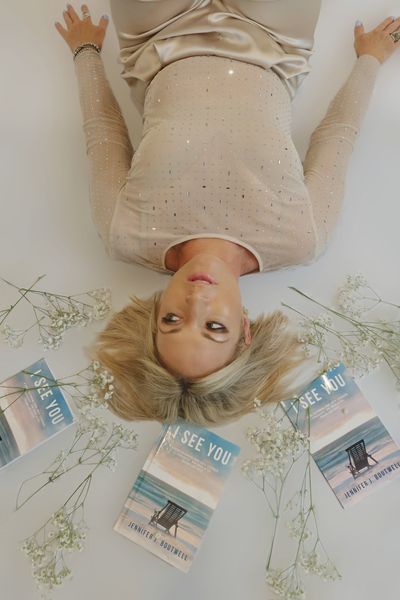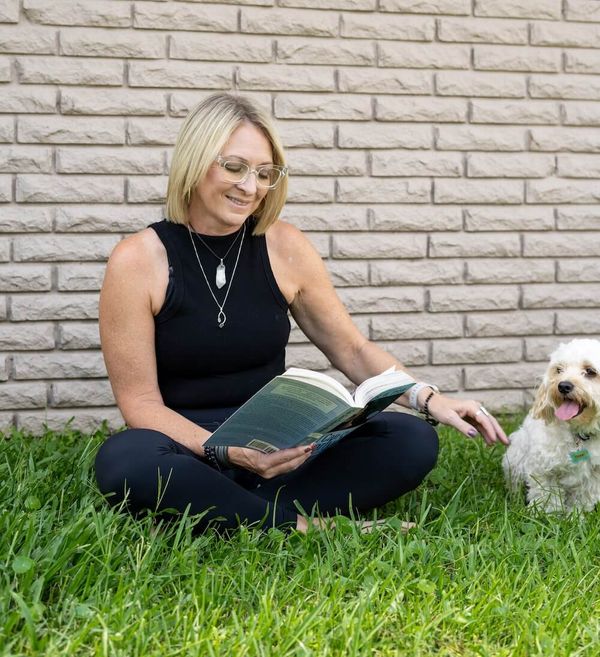
Healing is a journey, and you don’t have to walk it alone. In this space, I’m sharing the books that have inspired me, the tools that have helped me grow, and the lessons I’ve learned along the way.
I hope these resources help you feel seen, supported, and capable of creating the life you deserve.
-Jennifer

If you're looking for inspiration to let go of limiting beliefs…

If you need a reminder that you are already enough…
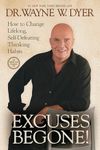
If you want to break free from self-doubt and excuses…

If you're looking to nourish your soul and spirit...
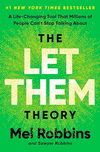
If you're ready to let go and embrace a fresh perspective...
If you’re looking for a calming playlist to support your meditation practice...
Listen to Jennifer's curated Meditation Playlist filled with soothing tracks to help you center, unwind, and reconnect.
Becoming Whole: The Blog
What Being Present Really Means: A Lesson I Learned The Hard Way By: Jennifer J Boutwell Nov. 30, 2025
Jennifer J. Boutwell
Dear Beautiful Soul,
For years, I misunderstood what it meant to be present.
If I showed up at my boys’ sporting events, sat in the stands, and cheered at the right moments, I told myself I was there.
If I went to dinner with someone and physically sat across the table, I told myself I was present.
If I stood behind the chair doing a client’s hair, I told myself I was present—because technically, I was there.
But the truth?
I couldn’t repeat a single thing that the client shared after they left.
I couldn’t remember half the conversations my friends tried to have with me.
And at my boys’ games, I often found myself answering messages, taking calls, or mentally running through my to-do list instead of actually watching them play.
Then one day, I realized
Presence is not physical proximity.
Presence is energetic availability.
That’s when things changed.
The True Meaning of Presence
If you look up the definition, presence means “the state of existing, occurring, or being in the moment.”
Not around the moment.
Not near the moment.
But in it—with your mind, heart, and attention aligned.
moreThe American Dream, Through My Eyes
Jennifer J. Boutwell
I sit on a sofa overlooking the window at the Gaylord Resort in Maryland, just outside of Washington, D.C. through the glass, the Ferris wheel spins slowly all lit up in purple lights— a quiet reminder of how life is always in motion.
Last night, as the plane descended over the city, I was struck by the beauty below, I forgot how beautiful this city is. The Washington Monument and the White House gleamed like beacons of
light and hope. In that moment, I was reminded of freedom — the very heartbeat of this country.
We’re far from perfect. America has its challenges, but when I think about what our ancestors envisioned — a place where people could dream, build, and create — I can’t help but feel grateful. Grateful that I get to wake up each day and have the most amazing opportunities before me.
What Is the American Dream?
For me, it’s not about “doing it all.”
It’s about having the option to do it all if that is what I choose.
It’s about the freedom to learn, to change my mind, to love myself fully, and to stand firmly in my beliefs and values with grace and compassion.
My American Dream is confidence — not perfection. It’s peace that comes from knowing I can build a life with intention, joy, and purpose.
moreDear Beautiful Soul Learning to Love Yourself Unconditionally
Jennifer J. Boutwell
Dear beautiful soul, kudos to you.
Kudos for showing up each day with love, ambition, and passion.Kudos for looking at yourself in the mirror and choosing to love yourself unconditionally.
Kudos for forgiving your mistakes and transforming them into life lessons.
Being single—or simply standing on your own two feet—often brings up emotions we didn’t expect.
One of the greatest gifts you can ever give yourself is learning to love who you are without needing validation from anyone else.
Relationships, whether romantic, friendships, or business, come and go. Yet each one carries a gift: the chance to learn trust, compassion, empathy, resilience, and above all, self-love.
I’ve been told before that I could walk away from relationships too easily, as if I were dismissing someone like a former employee. That might have been true twenty years ago, but as I’ve grown and healed, my perspective has shifted.
I’ve learned to love myself enough to love others deeply, too. And part of that love is honoring when a relationship has reached its season.
The truth is, staying in a relationship—or any situation—that no longer serves your peace, joy, or higher self does not benefit anyone. Sometimes, the most courageous act is to walk away.
moreWhen Life Happens: Choosing Presence Over Panic
Jennifer J. Boutwell
Dear Beautiful Soul,
Life will happen. Not if. Not maybe. It will. And often, it strikes when things are going
great—when you’re finally feeling steady, grounded, maybe even a little comfortable. It crashes in uninvited, with a phone call, a diagnosis, a loss, or a decision that flips everything upside down. It’s that obnoxious guest that crashes the party!
Twelve days ago, my world shifted in an instant. One phone call—and I was immediately thrown into survival mode. As an Enneagram 8, “the challenger/active controller,” my instinct is
to protect, control, and survive. I spring into action: planning, fixing, doing. It’s a trauma response—a learned pattern to guard my heart and keep moving.
For the first five days, I was all adrenaline and instinct. I didn’t allow myself to feel. I was too busy doing. But on day five, it hit me like a tidal wave: I was in my old pattern. I was numbing. I was abandoning myself. Not this time. Thank God for awareness.
I paused.
I breathed. I journaled. I meditated. I cried. I let the feelings I was avoiding catch up to me—and I didn’t run from them. I felt each one. I blessed it and released it. I leaned into my inner voice and listened.
moreBecoming the Woman Who No Longer Walks Away From Herself
Jennifer J. Boutwell
Have you ever felt that gut feeling that something wasn’t right, but silenced it to avoid conflict, please someone else, or because you feared being “too much”?
Have you ever felt that you can’t share the great thing that just happened because it would make someone else feel less than? Have you ever dimmed your light to make someone else feel more important?
Have you ever compromised your values to make someone else happy?
Have you ever said yes just to avoid letting someone down? These moments are examples of self-abandonment.
It’s when you override your own needs to fit into someone else’s expectations.
It’s when you compromise your values, so you're not labeled “difficult, a bitch, a prude.”
It’s when you stay silent instead of speaking your truth because you don’t want to make waves, have a fight, or cause any sort of disruption.
I know that place well. I lived in it for years. I self-abandoned to be “liked”, “loved,” and “accepted”.
But here’s what I’ve learned, not only through my own journey but through the stories and healing practices I share in I See You: you can’t fully heal while you’re still abandoning yourself.
moreFueling the Victor Within: Choosing to Rise Above Life’s Challenges
Jennifer J. Boutwell
Life happens to all of us. The good, the bad, the beautiful, the ugly—it all comes for us at some point. Trauma is universal, even if we don’t openly talk about it. Pain, loss, disappointment, grief, fear—no one is immune. But the defining factor isn’t what happens to us; it’s what we do with it. Tony Robbins says it best: “Life is happening for us, not to us.”
We all have two choices.
We can either be the victim, trapped by our past, stuck in our pain, repeating old cycles. Always believing that it is happening to us.
Or we can be the victor—choosing to rise, choosing to heal, choosing to learn, choosing to rewrite the narrative.
Personally, I choose to let it fuel me. To be the victor. I refuse to let my past define me in a way that limits me. Instead, I use it as the driving force behind my success, my growth, and my healing. It fuels me to be better today than I was yesterday. It fuels me to challenge myself, to take care of myself, and most of all, to love myself. It fuels me to serve others. It fuels me to show up for others and let them know they are not the victim.
You Can’t Pour From an Empty Cup
One of the biggest lessons I’ve learned—and one that I talk about in my book, I See You—is that you cannot show up for the people who matter in your life if you are not taking care of yourself first.
moreGrief Is Not Linear
Jennifer J. Boutwell
Grief Is Not Linear, But It Can Be Transformational
Grief doesn't come with a manual. Some days, the weight is heavy. Other days, we feel bursts of joy and guilt ourselves for it. But here's what I've learned in my journey: grief is love with nowhere to go. The key is to give that love purpose — by living in a way that honors the one we've lost.
Tips for Navigating Grief and Keeping the Memory Alive:
- Create Rituals of Remembrance Light a candle, plant a flower, or simply speak their name. Honor their birthday, favorite holiday, or a moment that reminds you of them. For me it's a trip to the beach or watching an episode of the Golden Girls.
- Tell Their Story Share their quirks, wisdom, or lessons they taught you. We keep people alive through stories — they become the threads in our soul's tapestry. One of my all-time favorite stories of Gabby was when she was about 4 years old. Gabby would come to the salon and the team at the salon would love to get her to talk because she had a strong southern drawl. Stephanie that worked with me would ask her over and over what she was going to wear to sleep in and with that strong southern accent she would say "my pajamerersss". Stephanie would ask again and Gabby would get mad and say "I toolldd you already my pajammmmmerssss."
- Make Space for All Emotions There is no right way to grieve. Allow yourself to cry, laugh, or sit in silence. All of it is sacred. Laugh and live. Feel it and release it.
- Be Your Authentic Self Gabby was unapologetically herself. And if she taught me anything, it's this: life is too short to pretend. Be bold. Be messy. Be real. Be YOU!!!
- Practice Daily Kindness Toward others, yes — but especially toward yourself. Healing begins with compassion, and showing yourself grace is not selfish; it's survival. Gabby wasn't always kind to herself but she would chose to help a stranger out no matter what. Gabby gave the ultimate gift to many- life.
The Weight of Expectations
Jennifer J. Boutwell
The Weight of Expectations: The Ones We Set and The Ones Placed on Us
Expectations. We all carry them—some we place on ourselves, others are placed on us by society, family, careers, and even social media. As a leader, I’ve spent years setting expectations for my team, outlining what success looks like, how we should show up, and the culture we should create together. But somewhere along the way, I had to stop and ask myself:
What expectations am I placing on myself? Are they serving me, or are they weighing me down?
Then came the even bigger question—what expectations do others have of me, and are they in alignment with who I truly am?
The Silent Pressure of Expectations
From a young age, we’re conditioned to meet certain expectations. Be kind, make good grades, work hard, achieve success, be a good parent, look a certain way, have it all together. The list is endless. Some of these expectations push us to grow, while others quietly suffocate us under the weight of perfectionism and people-pleasing.
I’ve felt it in my career, in my personal life, even in the way I show up for others. There was a time when I carried the expectation that I had to have all the answers, always be strong, and never let anyone see me struggle. I told myself that as a leader, I had to be the rock for my team and the people around me. But I never stopped to consider if those expectations were sustainable—or even fair.
moreThe Power of Forgiveness
Jennifer J. Boutwell
Forgiveness is one of the most powerful acts of self-love and personal growth. Just when you think you have mastered forgiveness, the Universe has a way of testing you. These moments challenge you to ask: Will I show up in my old patterns, or will I rise with a perspective of love? The answer to this question shapes not only your personal journey but also your effectiveness as a leader and entrepreneur.
Forgiveness isn’t always easy. It requires releasing the heavy burdens of anger, resentment, guilt, and fear. Yet, it is in letting go of these emotions that you create space for your higher self to emerge. Each act of forgiveness brings you closer to living the life of your dreams, free from the limiting beliefs that hold you back.
As an entrepreneur, and person forgiveness becomes an essential tool. People will come and go in your life and company. Sometimes, their departures can feel personal, leaving you questioning your leadership and your worth. But here's the truth: It’s not about you. Each person is on their own journey. They are navigating their own path, facing lessons and challenges that have little to do with you. Understanding this is crucial to becoming the kind of leader who leads with compassion, resilience, and grace. Never forget that some people are here for a season and others for your life journey.
moreI Am More than “ONLY” a Hairstylist
Jennifer J. Boutwell
As I travel the country meeting hairstylists it always leaves me in awe when someone says “you’re Only a hairstylist.”
What does that mean? Why do people say that? Why does being a hairstylist have any less worthiness than other professions? Why is being a hairstylist taboo in the eyes of so many people? Why do people say “you can’t make it in college just be a hairstylist?” Why do people say “you’re only a hairstylist you can’t really make a good living with that job?” Why is being a hairstylist viewed as mediocre? Why do people think less of a person because they are a hairstylist?
The first time I ran into someone telling me that I shouldn’t or couldn’t live my dream was in my tenth grade year in high school. I remember the guidance counselor telling me that I was wasting my brain and future if I became a “beautician.” (I was an honor student, and she thought I needed to be a doctor or lawyer). This was an ongoing conversation with her for two years.
I politely corrected her verbiage and said “I will be an amazing Cosmetologist. I promise I will not waste my brain.” Funny thing is that I am so glad I decided to be a part of the beauty industry. It has supported my family and brought joy to my life every day
more
